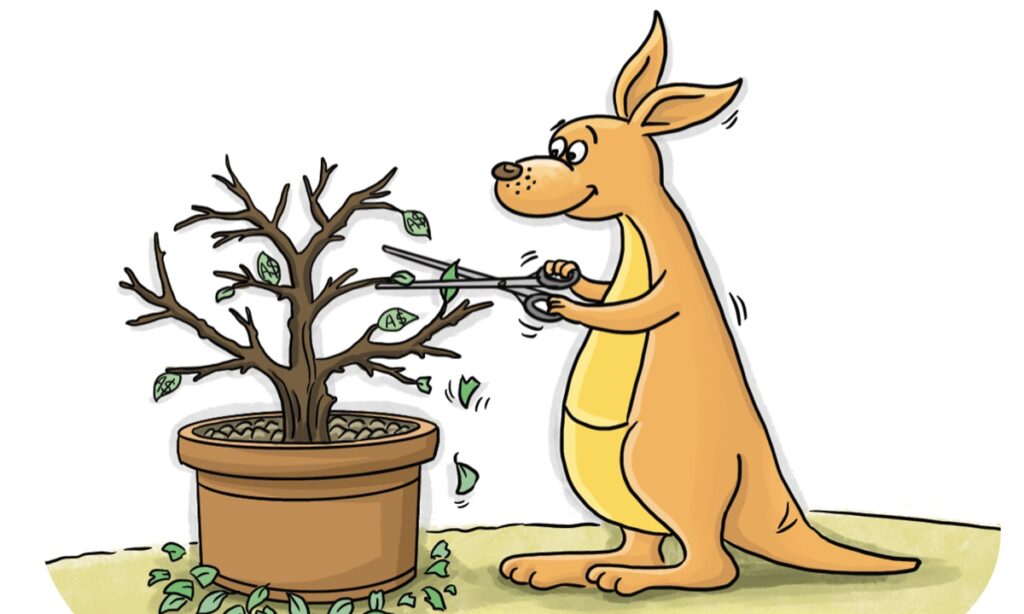It has been a while since relations between China and Australia went into a downward spiral, which has led to souring bilateral economic and trade ties as Canberra tried to politicize economic issues, while using political theater to paint itself as the perennial “underdog” to cover for its role as the US’ hired muscle against China on many fronts.
Since China announced antidumping investigation into Australian barley last May, Australian politicians and media outlets have been hyping up so-called “economic coercion” or “economic sanctions” from China. But they ignored the fact that it was only the first probe launched by China against Australia since they established diplomatic relations, while Australia had initiated over 100 investigations against China. That does not include other discriminatory moves taken by Australia against China.
Just over the past year or so, Canberra has banned Chinese 5G developer Huawei, heightened scrutiny toward Chinese investment, attempted to vilify the China-proposed Belt and Road Initiative, and even threatened academic cooperation between the two countries. The list goes on, but Canberra still pretends to be a victim.
Concerns over the deteriorating bilateral relation have cast a shadow over business cooperation, while Chinese consumers have been losing their enthusiasm for Australian products and services. China’s antidumping measures or import restriction on some Australia-made products, including red wine and timber logs, are in line with Chinese laws and WTO rules.
The negative impact on Australian producers and exporters should be plain for all to see, yet some Australian media outlets still deliberately claim that the country’s economy has barely taken a hit, given a relatively small drop of bilateral trade in value.
The seemingly stable trade data was mainly due to surging prices of iron ores exports from Australia; and “the value of Australian trade with China for almost all industries has plummeted by 40 percent since a trade dispute ramped up between the two countries”, reported the Australian ABC.
The 40-percent slump, though startling, is not the worst fallout faced by Australian industries. What’s much more severe is that they may miss the opportunity to be part of the colossal and rapidly growing Chinese market. Nearly no other market across the world could offer such a crucial chance for those Australian exporters, especially for consumer goods.
The Chinese public has shown that they will never allow a foreign country to collect profit from their market, while continuously offending China – a reality that Canberra should long be aware of.
Australian industries, suffering huge losses, repeatedly raised their objections toward Canberra’s skewed China policy. They are like American consumers and businesses that have been bearing the brunt of Washington’s confrontational approach toward China.
It’s increasingly clear that the Morrison administration did not get any tangible benefits from being the hired muscle of the US. While trying to be a royal “ally” to the US, Australia also needs to accept the fact that American industries are picking up the market share in China given up by Australian companies.
Also, playing the anti-China card seems insufficient to help lift polls for Australian politicians any more, as broken ties with its largest trading partner may lead to attacks from opposition parties. Morrison’s approval rating recently dropped to its lowest level since the 2019 bushfires due to a series of domestic controversies and scandals, according to media reports.
Both the diplomatic and internal situations have shown clearly that it’s unwise for Canberra to maintain an unnecessarily hostile attitude toward China. It does not need to take a side between China and the US as many US allies have shown and the Chinese people welcomes sound China-Australian economic ties as long as it’s based on mutual respect.
It’s hoped that Morrison’s government can make genuine effort to mend ties with China and stop pulling anymore meaningless political stunts. Though it may take some time, Canberra will eventually figure out what’s best for millions of Australians.
The article was compiled based on an interview with Zhou Fangyin, director of Center for Pacific Island Countries Studies of Guangdong University of Foreign Studies. bizopinion@globaltimes.com.cn
Illustration: Xia Qing/GT


